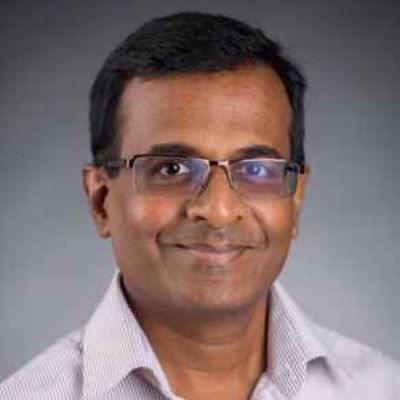Biography
Dr. Senthilkumar Somasundaram is a Professor in Computer Science in the Department of Computers & Technology, School of Arts & Sciences, St. George’s University.
Dr. Senthilkumar earned his PhD in Computer Science from Jawaharlal Nehru University in New Delhi, India (2011), M. Tech from Jawaharlal Nehru University in New Delhi, India (2006), M.Sc. in Computer Science (2000) and BSc (1998) from University of Peradeniya, Sri Lanka. He was awarded a fellowship by the Indian government (2004-2008).
His research interest started with his M.Tech dissertation titled “Hybrid Genetic – Fuzzy Approach to Autonomous Mobile Robot Navigation in Unknown Environments”. And then led to his PhD. titled “Multi Robot Terrain Exploration and Coverage in Unknown Environments”. He has interest to do research in the areas such as Artificial Intelligence, Soft computing, Data Mining and Robotics and did publish several reputed International Journal publications and international conference proceedings so far.
His publications have been cited in 198 research publications since 2009 till now (Seven h-index papers and six i10-index papers). Currently He is working with his research group (residing in Srilanka, India, Papua New Guinea and USA).
Contact Information
Areas of Interest
- Artificial Intelligence
- Machine learning
- Robotics
Affiliations
Selected Publications
- “Multi-Robot Exploration and Terrain Coverage in an Unknown Environment”, Robotics and Autonomous Systems, ELSEVIER, (ISSN: 0921-8890), Vol. 60(1), pp. 123-132, 2012. (Citations: 74)
- "Spanning Tree Based Terrain Coverage by Multi Robots in Unknown Environments”, proceeding of the International IEEE Conference on Control, Communication and Automation (INDICON 2008), (ISBN – 978-1-4244-3825-9), IIT, Kanpur, 11-13 December, India, pp. 120-125 . (Citations: 17)
- "Hybrid Genetic-Fuzzy Approach to Autonomous Mobile Robot”, proceedings of IEEE International Conference on Technologies for Practical Robot Applications (TePRA 2009), November 9 – 10, 2009, Massachusetts, USA. pp. 29-34. (Citations: 16)
- "A Single Beam Smart Antenna for Wireless Communication in Highly Reflective and Narrow Environment,” Proceedings of International Symposium on Fundamentals of Electrical Engineering 2016 (ISFEE2016), Bucharest, Romania, June 30-July 2, 2016. (Citations: 14)
- "Multi-Robot Terrain Coverage by Constructing Multiple Spanning Trees Simultaneously", International Journal of Robotics and Automation, (ACTA Press), vol. 25(3), pp. 195-203. (Citations: 11)
- "Single Perceptron Model for Smart Beam forming in Array Antennas,” International Journal of Electrical and Computer Engineering (IJECE), vol. 6(5), pp. 2300-2309, 2016. (citation: 12)
- "An Electromagnetic Signal Processor for Beam-forming a Wireless Mobile Sensor Station: Strengthening the Desired Signal and Nulling Main Interference", International Journal of Control Theory and Applications, International Science Press, vol.10(6) 2017. (citation: 2) ISSN 0974-5572
- "Determining Safe Electrical Zones for Placing Aircraft Navigation, Measurement and Microelectronic Systems in Static Thunderstorm Environment", International Journal of Control Theory and Applications, ISSN : 0974-5572, International Science Press, Volume 10 , Number 16 , 2017
- “A Robust, 3-Element Triangular, Reflector-less, Single Beam Adaptive Array Antenna for Cognitive Radio Network: Inter-element Distance Dependent Beam”, Journal of Telecommunication, Electronic and Computer Engineering (JTEC) vol 8(12), pp. 79-82, ISSN: 2180-1843
- “Accuracy of Perceptron Based Beam forming for Embedded Smart and MIMO Antennas,” Proceedings of International Symposium on Fundamentals of Electrical Engineering 2016 (ISFEE2016), Bucharest, Romania, pp. 1-6, 2016. DOI: 10.1109/ISFEE.2016.7803215, Jan 2017. (Citations: 5)
Selected Projects
SVM Research Faculty
View the SVM faculty involved in research and SVM Adjunct and Cooperating faculty who collaborate with SVM researchers. SVM faculty also collaborate with many other researchers at institutions in North and South America, Europe, Africa and Asia. These collaborations are reflected within the individual SVM faculty research profile.


